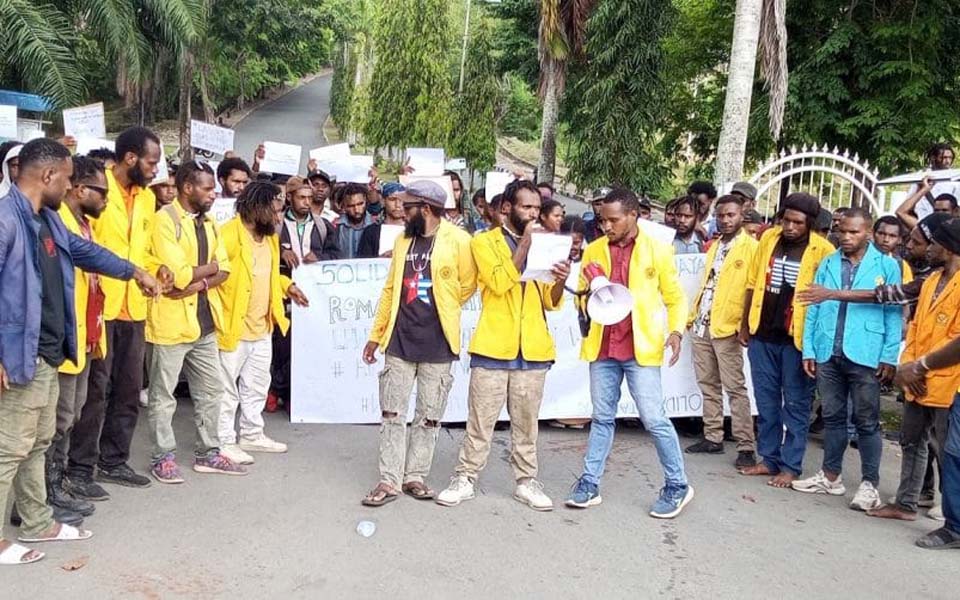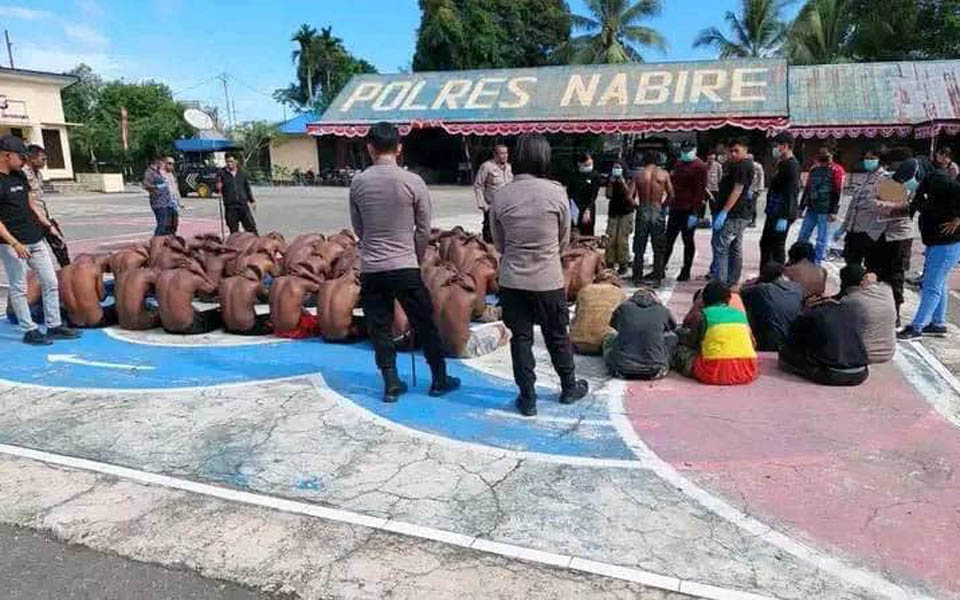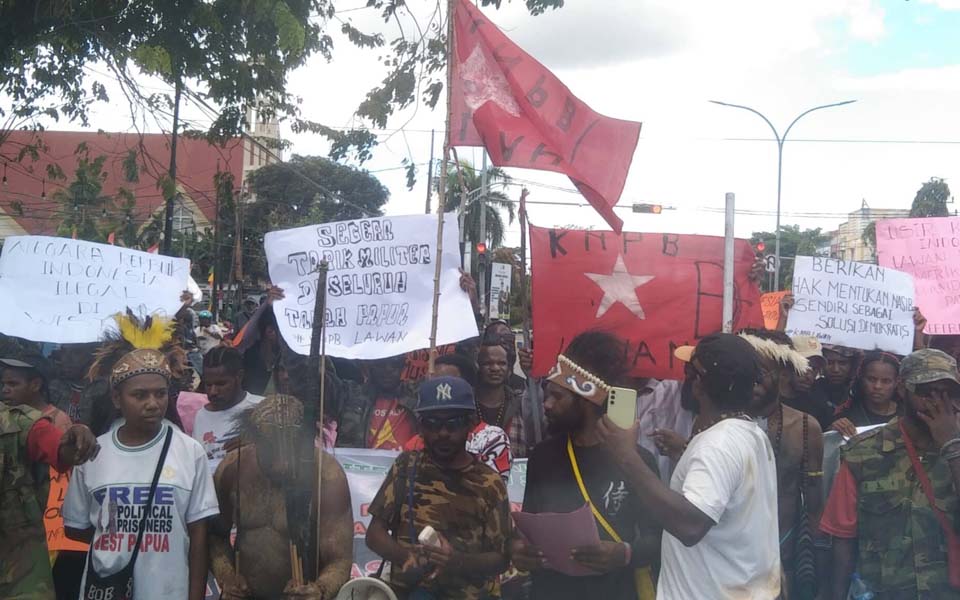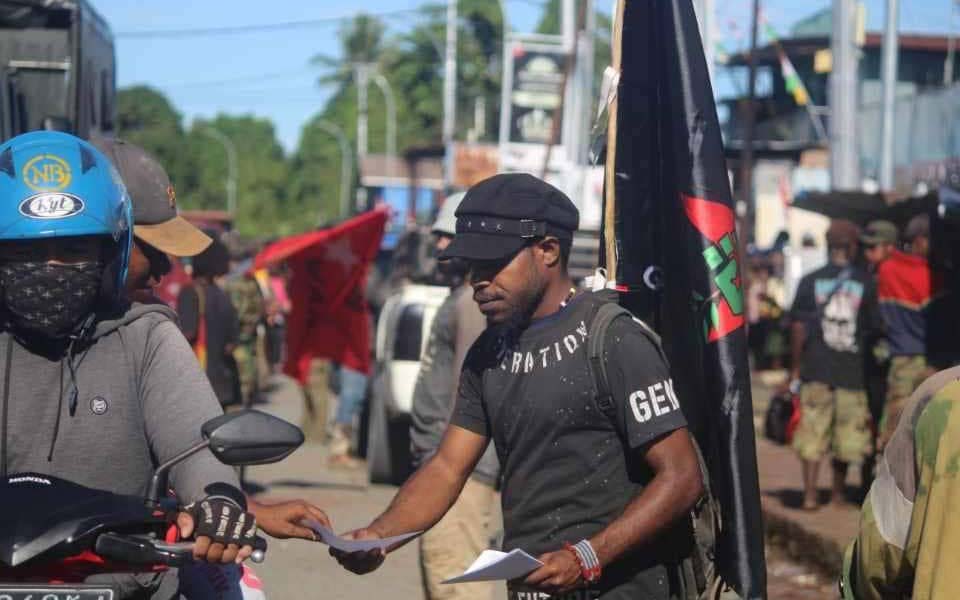Jakarta – The Constitutional Court (MK) has rejected a judicial review of Law Number 12/1969 on the Formation of the West Irian (Papua) Autonomous Province and Autonomous Regencies in the Province of West Irian which was submitted based on the 1945 Constitution of the Republic of Indonesia.
“We hereby pronounce and declare that the appeal by the applicants cannot be accepted”, said the presiding judge in reading out the ruling at the Constitutional Court in Jakarta on Monday January 6.
The challenge was submitted by the Papuan People’s Advocacy Coalition for Truth and Justice on April 12 last year. The appeal was registered as Number 35/PUU-XVII/2019.
The object of the judicial review was Law Number 12/1969, specifically the considerations section along with Paragraphs 7 and 8 of the elucidation.
In the object being tested, namely the first section of the elucidation, it states that the majority of Papuan people with full awareness and feelings of unity elected to become part of Indonesia through the 1969 People’s Referendum (Pepera, the 1969 UN sponsored referendum on West Papua’s integration with Indonesia known as the Act of Free Choice).
The Coalition however felt that the implementation of the Pepera was ridden with human rights violations. The Papuan people also did not make their choice independently but rather, were coerced by rouge individuals into deciding to become part of Indonesia. This conflicts with Article 28E Paragraph (2) and Article 28G Paragraph (1) and Article 28I Paragraph (1) of the 1945 Constitution.
Because of this therefore, they felt that the Pepera was invalid and should not have been used as a basis for the formation of Papua province as mandated under Law Number 12/1969. Thus the formation of Papua province based on Law Number 12/1969 is invalid.
Despite this, in handing down their decision on the appeal the Constitutional Court panel of judges took a different view.
Constitutional Court Justice I Dewa Gede Palguna said that the Constitutional Court does not have the authority to assess the validity of the results of the 1969 Pepera. This is because the Pepera was endorsed by United Nations General Assembly Resolution Number 2504 (XXIV) dated November 19, 1969.
“Arguing constitutional damages arising out of the stipulations of Law Number 12/1960 means the same as ‘forcing’ the Court to assess the validity of the UN’s actions”, said Palguna.
In their ruling, the court also explained that the applicants did not have the right to submit a judicial review bearing in mind that Law Number 12/1969 is part of a policy on the formation of regions so only regional government have the legal standing to submit such an appeal.
“Bearing in mind that because the appeal is not related to constitutional issues and that the applicants do not have the legal standing to submit a judicial review, a quo (from which) the Court cannot give any further consideration to the basic appeal of the applicants”, said Palguna. (tst/bmw)
Notes
Known as the “Act of Free Choice”, in 1969 a referendum was held to decide whether West Papua, a former Dutch colony annexed by Indonesia in 1963, would be become independent or join Indonesia. The UN sanction plebiscite, in which 1,025 hand-picked tribal leaders allegedly expressed their desire for integration, has been widely dismissed as a sham. Critics claim that that the selected voters were coerced, threatened and closely scrutinized by the military to unanimously vote for integration.
[Translated by James Balowski. The original title of the article was “MK Tolak Gugatan Keabsahan UU Pembentukan Papua”.]















